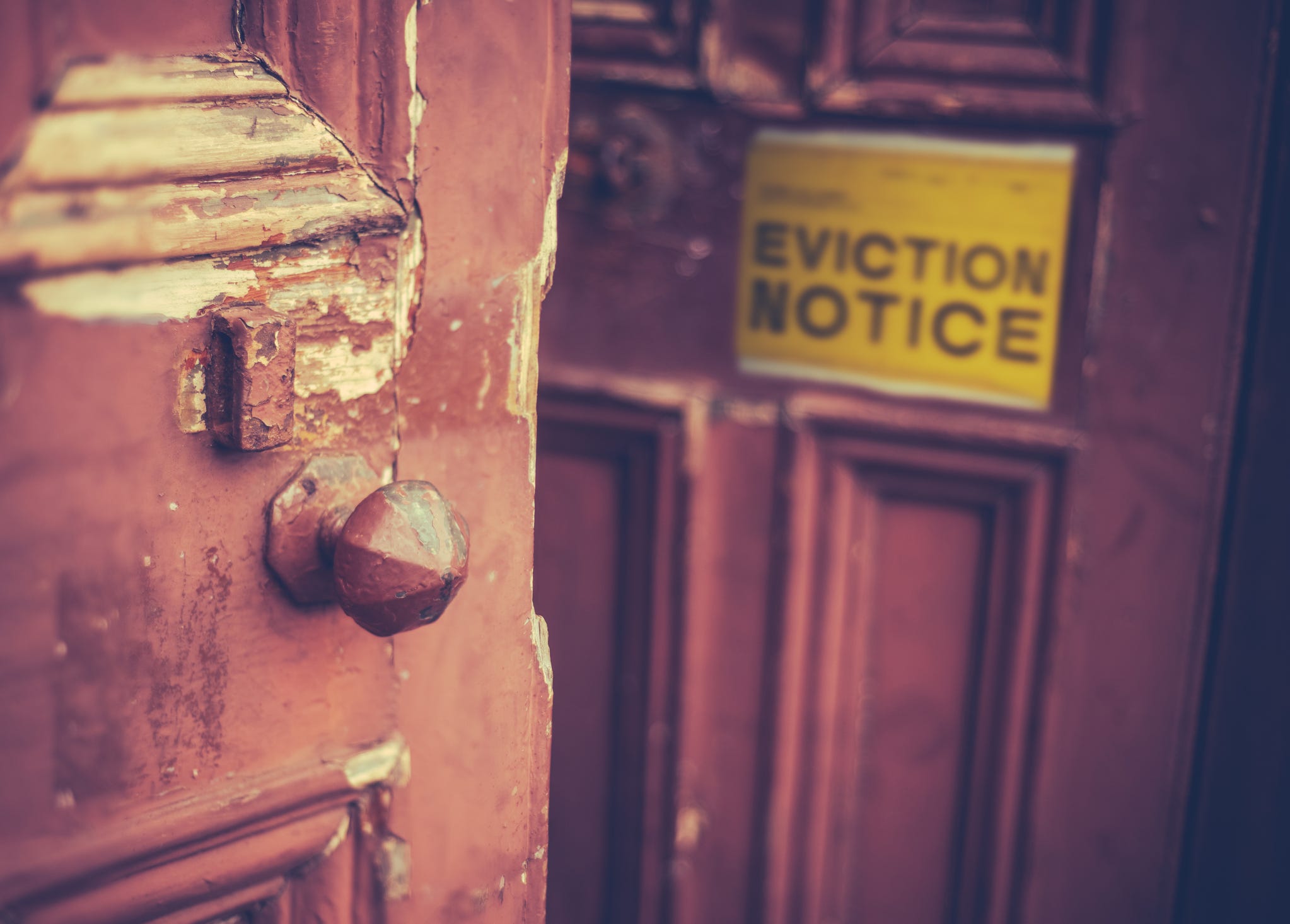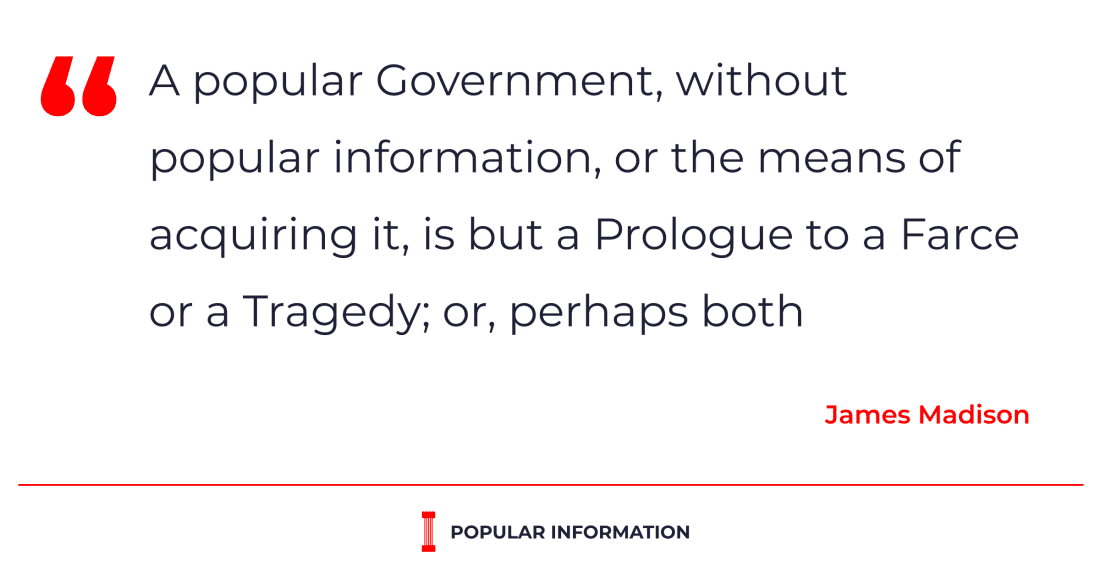 |
Sixty-two corporate landlords who have received taxpayer bailouts intended to blunt the economic impact of the pandemic are pursuing evictions despite a federal moratorium, a Popular Information investigation reveals. The large landlords have received at least $60.9 million in forgivable loans from the Paycheck Protection Program, which was intended to help prevent an economic collapse. After the Center for Disease Control and Prevention (CDC) announced a national eviction moratorium on September 1, the same landlords have initiated at least 494 legal actions for eviction.
These corporate landlords are attempting to exploit a weakness in the moratorium announced by the CDC. Specifically, the moratorium is not self-executing. Tenants must sign a declaration attesting to their income, the reason they are unable to pay rent, and their efforts to obtain government assistance or alternative housing. Corporate landlords know that most tenants (90%) are not able to obtain legal counsel that can advise them about how to assert their legal rights.
The CDC has provided a form for tenants to fill out, but it's possible for a tenant to make it through the entire eviction process without even being aware of the CDC moratorium. The CDC did not specify whether judges should inform tenants about the moratorium or the form. Some judges in Texas, for example, believe that it would be improper for them to advise tenants of their rights. "Me telling a tenant to fill out an affidavit may be bridging over to legal advice instead of legal information," Jeremy Brown, a judge in Harris County, Texas, said. Other judges in Brown's courthouse are telling defendants about the availability of the form.
A review of 100 cases in Harris County last week found that just one eviction was halted as a result of the federal moratorium. Some judges rejected the tenants' CDC declarations because they weren't notarized, which is not a requirement of the CDC policy. Other judges were not convinced that tenants made their "best effort" to pay rent and issued a one-week continuance. Some tenants were told the CDC policy did not apply to them without any explanation.
Successful eviction actions could put families on the street during a pandemic. But even unsuccessful actions put additional pressure on renters who may already be struggling to provide for their families' basic needs and trying to find work during a severe economic crisis.
The figures in this report represent only a portion of the problem. The eviction activity from corporate landlords comes from court data, collected by the Private Equity Stakeholder Project, from 12 counties in five states (Arizona, Texas, Tennessee, Georgia, and Florida). That means that there are more eviction cases — and corporate landlords who received PPP loans — that are not included in this investigation.
Here are the details of the ten corporate landlords who have filed the most eviction cases since September 1.
CAPREIT
CAPREIT, a Maryland-based real estate operating company that describes itself as “one of the nation’s leading multifamily housing companies,” has filed 37 evictions across Tennessee and Georgia since September 1. The company, which operates 76 multifamily apartment communities across the U.S., has spent the past few years investing heavily in properties that qualify for the low-income housing tax credit. According to CAPREIT’s president Andrew Kadish, the firm keeps these properties at less than 100% occupancy so as to “charge max rents” and not leave any money on the table. Back in April, CAPREIT received a $5-10 million PPP loan. CAPREIT did not respond to a request for comment.
Priderock Capital Management
Real estate asset manager Priderock Capital Management has filed 35 evictions so far this month after securing a $2-5 million PPP loan. According to its site, the company has been “involved in the day to day operations of over 100+ communities throughout the United States.” Most recently, in May 2020, the company paid $83 million for an apartment complex in Colorado. Priderock Capital Management did not respond to a request for comment.
ACRE
Asia Capital Real Estate Management (ACRE), a global real estate private equity firm that manages more than $2.1 billion in assets, has filed 34 evictions across Florida and Georgia since September 1. It received $150,00-350,000 in PPP loans. Last month, the firm announced that it was providing $86.3 million to refinance a rental property in Florida. ACRE’s senior vice president Daniel Jacobs said that the firm is “very active” in the sector and plans to grow. ACRE did not respond to a request for comment.
Odin Properties
Odin Properties, a Philadelphia-based real estate firm, has filed 32 eviction cases against tenants in Tennessee. The company, which owns and manages 7,000 units across the U.S., received a $1-2 million PPP loan. In August, the company purchased 407 units in Florida for almost $22.8 million. Odin Properties did not respond to a request for comment.
Blue Magma Residential
Blue Magma Residential, a Florida-based real estate investment group, boasts that it owns more than 10,000 units and manages $1 billion in assets. Since September 1, the company has filed 22 evictions against tenants in Georgia and Tennessee, despite acquiring a $1-2 million PPP loan. Previously, WABE reported in July that Blue Magma Residential filed 60 evictions in just one complex, initiating the second most eviction cases in Fulton County, Georgia. Blue Magma Residential did not respond to a request for comment.
Tzadik Management
Florida-based property management company Tzadik Management received a $3 million PPP loan and has filed 20 evictions since September 1. According to its website, the company “has managed more than $1 billion in apartment complexes, over 15 million square feet of commercial real estate and more than 19,000 units in over 20 states.” It doesn’t appear the company is strapped for cash. Over the summer, Tzadik acquired a commercial property management company and secured permanent financing for two apartment portfolios. Yet, Tzadik continues its spree of eviction filings. According to a report by the Center for Public Integrity in July, Tzadik has initiated the most evictions in Florida since the pandemic. The Tampa Bay Times reports that the firm has also elicited a discrimination lawsuit from the U.S. Department of Housing and Urban Development this summer for “refusing to waive $100 monthly late fees for a tenant who paid rent with disability benefits, which arrived late in the month.”
Tzadik told Popular Information that “filing is simply the first step in the eviction process...nothing is completed or moved forward without an official court hearing, which will not take place until the moratorium is lifted.” However, this is not true as eviction proceedings can still move forward. Tzadik is still delivering notices and terminating month-to-month leases.
Tzadik also shared that the PPP loan was used to “retain all its employees” and “provide all Tzadik employees with the newly created Tzadik Stimulus Package.”
Benedict Canyon Equities
Benedict Canyon Equities, a multifamily real estate investment company, has filed 19 evictions this month. The company, which has more than 9,000 units across 48 properties worth $2.2 billion, received a $150,000-$350,000 PPP loan in April. In March, the company purchased a property in Colorado for almost $87 million. Just last month, Benedict Canyon Equities acquired a Las Vegas luxury apartment community for $21.5 million. Benedict Canyon Equities did not respond to a request for comment.
Pro Residential
Since September 1, apartment management company Pro Residential has filed 17 evictions, despite receiving a $150,000-$350,000 PPP loan in May. Pro Residential attorney Steven E. Glass told Popular Information that the firm has a “local eviction attorneys that know what the law is.” Glass added that the federal order is "not a blanket moratorium banning all evictions" and “spells out when you can evict.”
Strata Equity Group
California-based real estate investment firm Strata Equity Group has initiated 18 evictions since the beginning of the month, despite receiving a $350,000-1 million PPP loan. In response to a request for comment, the company said that “Strata Equity Group is the corporate platform of a multifaceted group. None of our affiliated properties have utilized PPP funds or any government funding opportunities arising from the pandemic.”
Provence Real Estate
Similarly, Provence Real Estate has filed 17 evictions since September 1. The real estate management company, which claims to have “extensive experience with property management,” secured a $1-2 million PPP loan in April.
You can find details on the rest of the 62 corporate landlords who received PPP loans and continue to file eviction actions HERE.
 |

